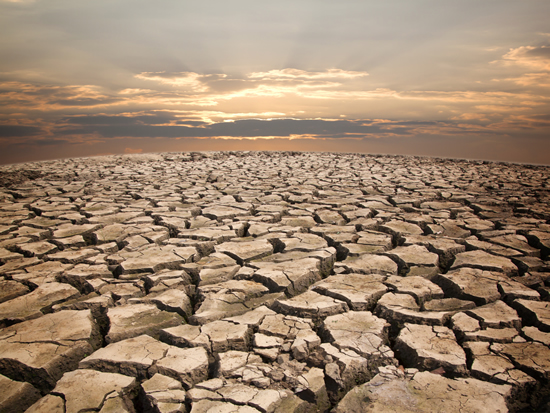|
LEHIGH NEWS
Kelly Austin Finds Link Between Drought and Women and HIV in Less-Developed Countries
By Emily Collins
New research explores the consequences of drought and lack of environmental resources on women in less-developed countries and shows the direct and indirect associations to women’s percentage of HIV.

December 01, 2020 - Current research predicts that by 2025, 1,800 million people are expected to be living in countries or regions with insufficient water resources, and models show increased severity of droughts in years to come. Food insecurity and other consequences of droughts will become intensified, influencing disease vulnerabilities among populations in less-developed countries. New research from Kelly Austin, associate professor of sociology, explores how droughts shape gender inequalities in the HIV burden, indirectly through increased food insecurity.
The paper, “Drying Climates and Gender Suffering: Links Between Drought, Food Insecurity, and Women's HIV in Less-Developed Countries,” is published in Social Indicators Research.
This study builds on previous attempts to explain women’s disproportionate share of global HIV cases through biological, cultural and socioeconomic inequalities by bringing the environment and climate-related disasters into the discussion.
“While many infectious diseases like HIV/AIDS do not have a direct link to the environment in their transmission patterns or vectors, disasters such as drought can still have a significant influence on the social conditions that shape and enhance vulnerabilities,” said the researchers, adding that hunger and food insecurity are key factors motivating women’s engagement in early marriage, commercial sex, transactional sex relationships, and other forms of risky sex engagements.
Using a structural equation modeling approach, Austin and her colleagues were able to test the indirect and direct links between food insecurity and HIV as well as the causal chain of factors involving drought, food insecurity, and women's HIV.
The results from the study found that drought escalates food insecurity, and food insecurity has indirect, negative impacts on women's status, including lower participation in education, higher fertility rates and reduced access to medical care. Since women's status and the use of contraceptives are tightly linked, these impediments directly increase the percentage of HIV cases among women, confirming the researchers’ hypothesis.
“Uncovering these mechanisms would not have been possible with more mainstream approaches,” said Austin.
It’s common to see strict gender norms in place where women are typically the household managers, carrying the responsibility for growing and harvesting food, collecting firewood, fetching water, and other tasks that provide household needs through environmental resources. In less-developed countries, droughts are the most common cause of severe food shortages, affecting agriculture first. As a result, changes to the environment are likely to compromise women’s health in these unique ways.
According to the research, when a crisis hits, women are typically the first to sacrifice their own food to ensure their children and others have enough to eat. Food insecurity directly leads to infection risks through nutrient deficiencies. Additionally, food insecurity indirectly intensifies gendered inequalities that limit women’s access to healthcare, education, and improved autonomy, potentially putting women in a more vulnerable position of contracting HIV.
“Women in less-developed countries disproportionately bear the burden in terms of ill health when facing food insecurity or a shock or disaster like drought that impacts the ability to get food or harvest food,” said Austin. “This information would be useful for policy makers and people working in international development and disaster response.”
World AIDS Day is December 1.
Austin investigates this subject in a sister paper, “Drought and Disproportionate Disease: An Investigation of Gendered Vulnerabilities to HIV/AIDS in Less-Developed Nations,” published in Springer Nature’s Population & the Environment.
###
About LEHIGH UNIVERSITY
Located in Pennsylvania's beautiful Lehigh Valley, Lehigh is one of the nation's most distinguished private research universities. Through academic rigor, an entrepreneurial mindset and collaborative opportunities we challenge our students to become the leaders of the future. www2.lehigh.edu
MEDIA CONTACT:
Emily Collins
Media Relations Specialist
(610) 758-3969 (o)
ejc220@lehigh.edu
Source: https://www2.lehigh.edu/news/kelly-austin-finds-link-between-drought-and-women-and-hiv-in-less-developed-countries
"Reproduced with permission - LEHIGH UNIVERSITY"
LEHIGH UNIVERSITY
For more HIV and AIDS News visit...
Positively Positive - Living with HIV/AIDS:
HIV/AIDS News
|